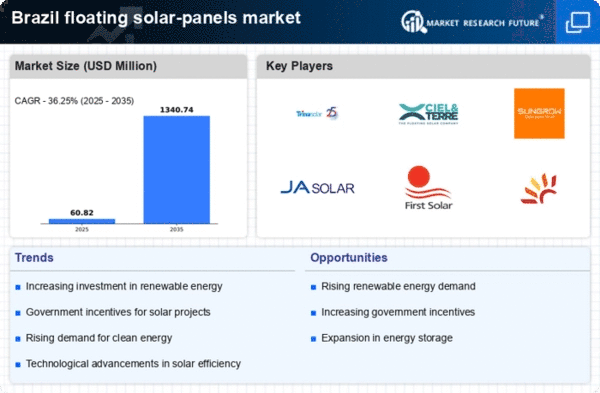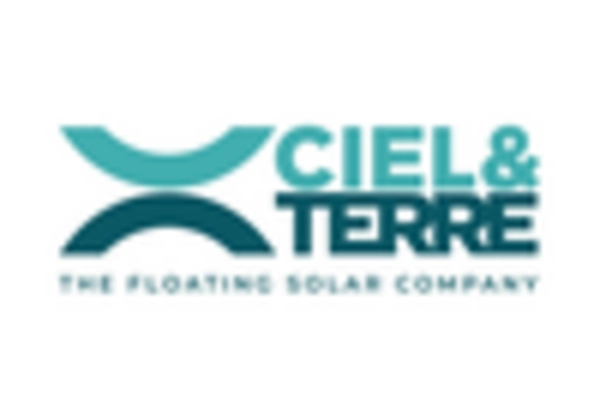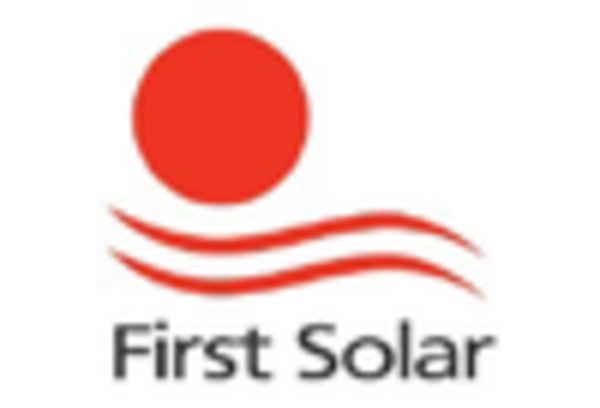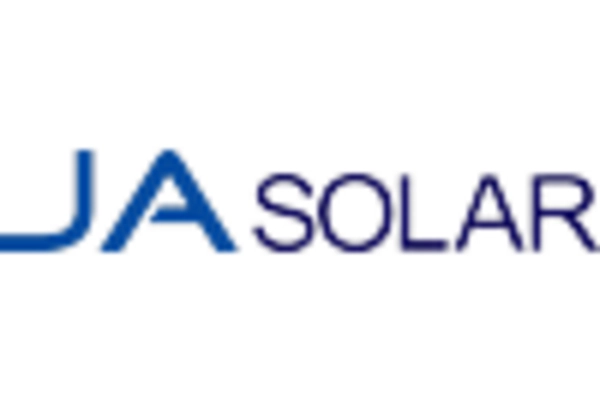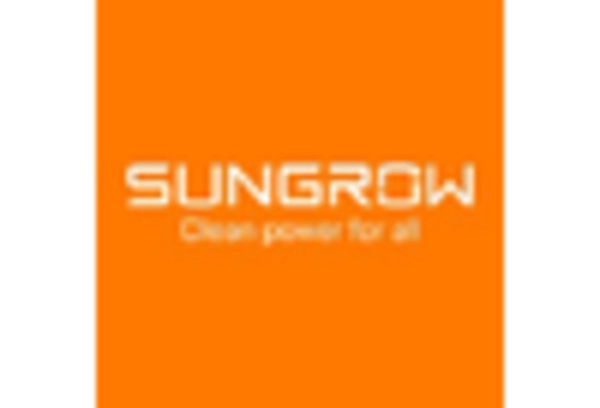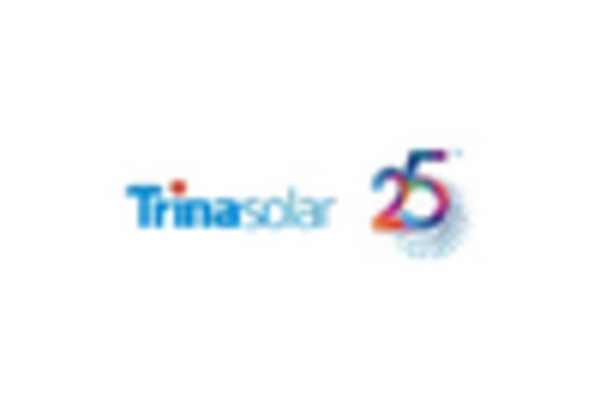Rising Energy Demand
The increasing energy demand in Brazil is a crucial driver for the floating solar-panels market. As the population grows and urbanization accelerates, the need for sustainable energy sources becomes more pressing. Brazil's energy consumption has been on an upward trajectory, with projections indicating a growth rate of approximately 3.5% annually. This rising demand necessitates innovative solutions, and floating solar panels offer a viable alternative to traditional land-based solar installations. By utilizing water bodies, these systems can generate electricity without competing for land resources, which is particularly beneficial in densely populated areas. The floating solar-panels market is thus positioned to play a pivotal role in meeting Brazil's energy needs while contributing to environmental sustainability.
Technological Innovations
Technological advancements in solar energy systems are driving the floating solar-panels market in Brazil. Innovations such as improved photovoltaic cell efficiency and enhanced anchoring systems are making floating solar installations more viable and cost-effective. The development of lightweight materials and advanced monitoring systems has also contributed to the growth of this market segment. As technology continues to evolve, the cost of floating solar panels is expected to decrease, making them more accessible to a broader range of consumers. This trend indicates a promising future for the floating solar-panels market, as technological innovations enhance the feasibility and attractiveness of these systems.
Water Resource Management
Brazil is endowed with vast water resources, making water management a significant driver for the floating solar-panels market. The integration of solar panels on water bodies not only generates renewable energy but also aids in reducing evaporation rates, which is critical in regions facing water scarcity. Studies suggest that floating solar installations can reduce evaporation by up to 90%, thereby conserving valuable water resources. This dual benefit of energy generation and water conservation aligns with Brazil's goals of sustainable development. As the country grapples with climate change impacts, the floating solar-panels market emerges as a strategic solution to enhance water resource management while promoting clean energy.
Investment in Renewable Energy
Brazil's commitment to renewable energy investment is a significant driver for the floating solar-panels market. The government has set ambitious targets to increase the share of renewables in the energy mix, aiming for 45% by 2030. This commitment is reflected in the growing financial support for renewable projects, with investments in solar energy reaching approximately $2 billion in recent years. Floating solar panels, with their unique advantages, are likely to attract a portion of this investment, as they offer innovative solutions for energy generation in a country rich in water bodies. The floating solar-panels market stands to benefit from this trend, as investors seek sustainable and profitable opportunities.
Regulatory Support and Frameworks
The regulatory environment in Brazil is increasingly supportive of renewable energy initiatives, which serves as a driver for the floating solar-panels market. Recent policies have been implemented to streamline the permitting process for solar projects, including floating installations. This regulatory support is crucial for attracting investments and facilitating project development. Additionally, the Brazilian government has introduced incentives for renewable energy projects, which may include tax breaks and subsidies. Such frameworks not only encourage the adoption of floating solar technology but also foster a competitive market landscape. The floating solar-panels market is likely to thrive under these favorable regulatory conditions, promoting sustainable energy solutions.


